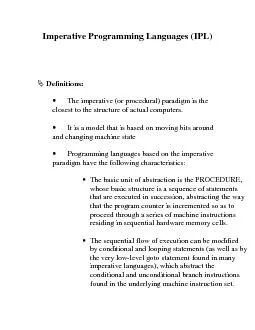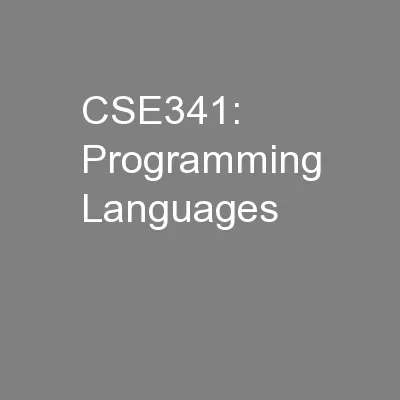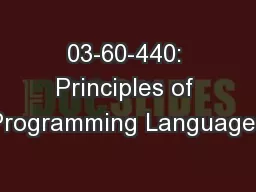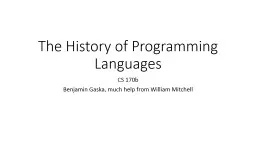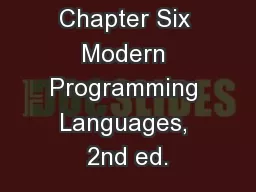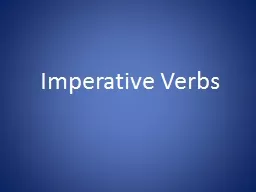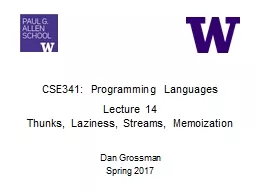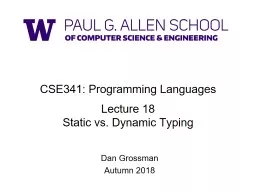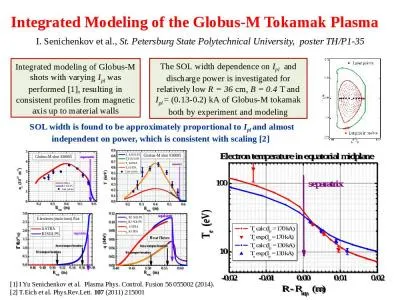PDF-Imperative Programming Languages (IPL) Definitions: The imperative (o
Author : lindy-dunigan | Published Date : 2015-08-12
Variables play a key role and serve as abstractions of hardware memory cells Typically a given variable may assume many different values of the course of the execution
Presentation Embed Code
Download Presentation
Download Presentation The PPT/PDF document "Imperative Programming Languages (IPL) ..." is the property of its rightful owner. Permission is granted to download and print the materials on this website for personal, non-commercial use only, and to display it on your personal computer provided you do not modify the materials and that you retain all copyright notices contained in the materials. By downloading content from our website, you accept the terms of this agreement.
Imperative Programming Languages (IPL) Definitions: The imperative (o: Transcript
Download Rules Of Document
"Imperative Programming Languages (IPL) Definitions: The imperative (o"The content belongs to its owner. You may download and print it for personal use, without modification, and keep all copyright notices. By downloading, you agree to these terms.
Related Documents

